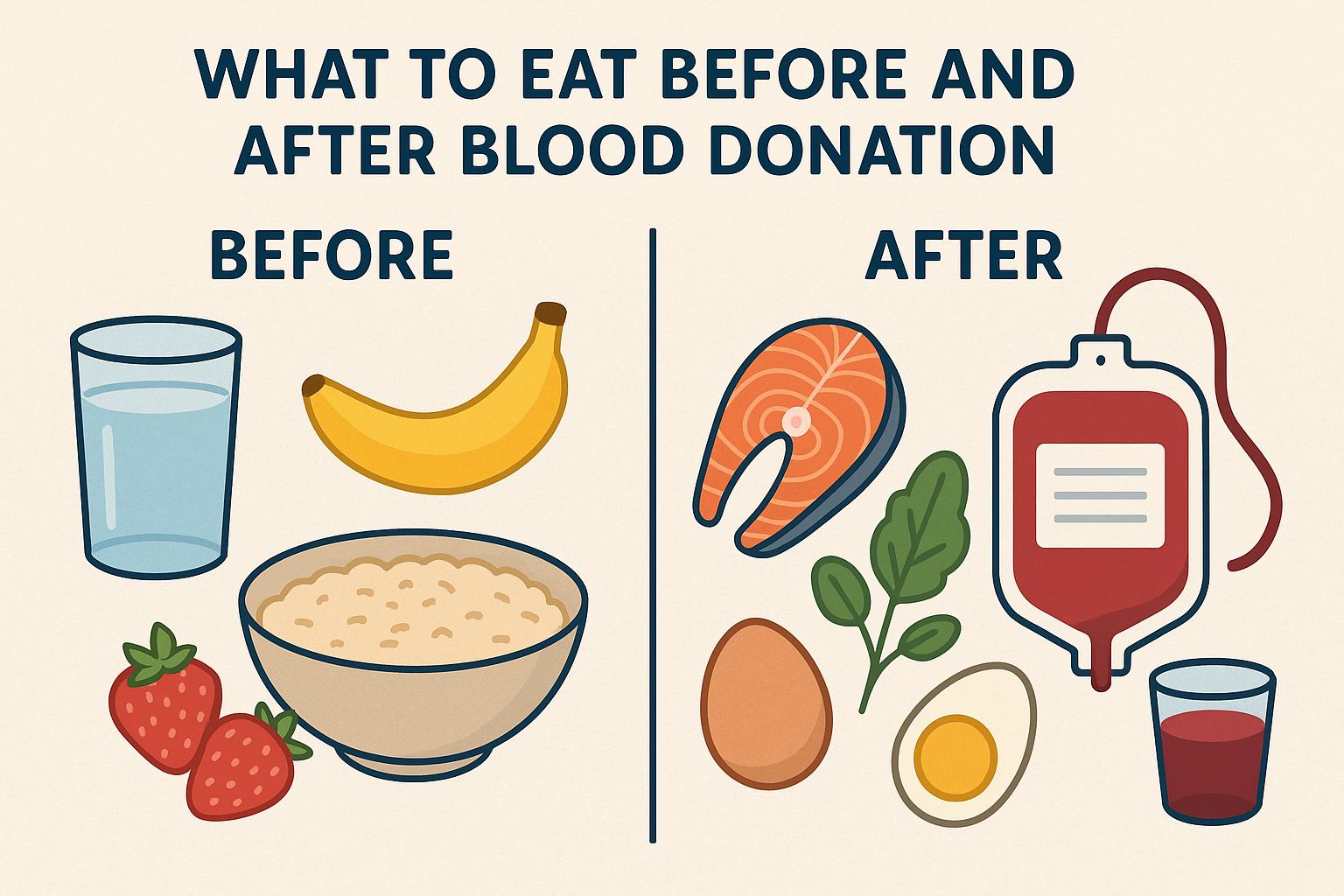Introduction
Donating blood is undoubtedly a benevolent act that holds the potential to save lives. The nourishment of your body plays a significant role in enabling you to donate effectively and in ensuring a smooth recovery post-donation. This article aims to guide you on the necessary dietary measures, emphasizing what to eat and drink, so as to optimize your blood donation experience and maintain your overall well-being.
What to Eat Before Blood Donation
Before donating blood, it is critical to adequately fuel your body to maintain energy levels and stabilize blood sugar. Selection of appropriate foods not only aids in your well-being but also enhances the quality of your donation.
Iron-Rich Foods
Including iron-rich foods in your diet prior to donation is vital. Foods such as lean meats, beans, spinach, and iron-fortified cereals are excellent sources. Iron plays an essential role in the production of hemoglobin, the protein responsible for transporting oxygen throughout your bloodstream.
Vitamin C
Vitamin C is known to facilitate iron absorption. Consuming Vitamin C-rich foods alongside iron-rich options can enhance this process. Citrus fruits, strawberries, bell peppers, and broccoli are excellent choices. You can explore more on dietary sources of Vitamin C by visiting this informative link.
Hydration
Ensuring you are well-hydrated before donating blood is crucial. Drinking ample water helps you maintain hydration, making the donation process smoother and reducing the possibility of experiencing dizziness.
Foods to Avoid Before Blood Donation
Just as there are foods to consume, there are also foods to avoid to ensure a proper blood donation process.
Fatty Foods
High-fat foods should be avoided as they can interfere with blood testing procedures. Greasy fast foods like burgers and fries fall into this category and are best left off your pre-donation menu.
What to Eat After Blood Donation
Once you’ve completed the process of donating blood, it’s important to focus on replenishing the nutrients and fluids you’ve lost to facilitate a swift and smooth recovery.
Iron and Protein
Post-donation, consuming a meal that is rich in both iron and protein will help restore energy levels and promote faster recovery. Foods such as eggs, chicken, fish, and legumes are particularly beneficial for supplying iron and protein together.
Healthy Carbohydrates
Complex carbohydrates are essential for rebuilding your energy stores. Whole grains, including options like brown rice and oatmeal, make excellent choices for rejuvenation.
Hydrate Again
Rehydration after your donation is vital. Additional water intake is advisable, and incorporating hydrating beverages such as fruit juice or an electrolyte drink can further aid in fluid restoration.
Additional Considerations
Experiencing tiredness or lightheadedness post-donation is not unusual. Keeping the following tips in mind can help mitigate any discomfort:
– Refrain from engaging in any strenuous physical activities immediately following your donation. It’s important to give your body ample time to recuperate.
– If you begin to feel faint, finding a place to sit or lie down can help alleviate dizziness.
– Notify the blood donation staff promptly if you face any adverse effects following your donation. They can provide the necessary assistance and guidance as needed.
In conclusion, the process of donating blood, when undertaken with the appropriate nutritional preparation, can be a safe, fulfilling, and life-saving endeavor. By following these dietary guidelines, you not only enhance the quality of your donation but also support your swift recovery afterward. Your contribution through blood donation is generous and impactful, and nurturing your body beforehand ensures both your wellbeing and the well-being of those you aim to help. Taking care of yourself is as important as the act of giving, and with the right preparation, your blood donation experience can be a rewarding one.
